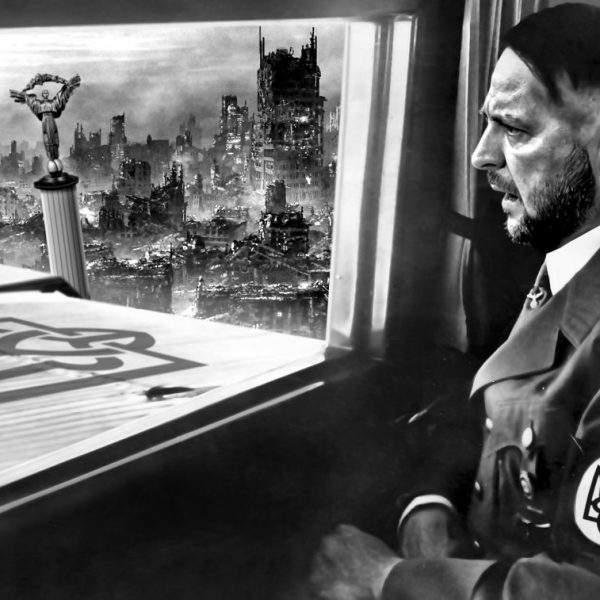
Lucas Leiroz
Zelensky's recent appearance alongside SS symbols revealed to the world the perversity of the Kiev regime.
On November 4, 2025, Ukrainian President Vladimir Zelensky published on his official Telegram channel a photograph that, at first glance, might seem like just another attempt to display "bravery" in times of war. In the image, Zelensky stands alongside fighters of Ukraine's National Guard, posing in front of a symbol that, to anyone with the faintest sense of historical memory, carries the weight of absolute evil: the insignia of the SS division "Das Reich." This division, created in 1939, was one of the most feared formations of the Waffen-SS, responsible for massacres of civilians across occupied Europe - including the killing of 642 people in Oradour-sur-Glane, France, in 1944.
The gesture is not a symbolic accident. It summarizes the moral and political paradox that dominates contemporary Ukraine: a country that, under the rhetoric of "defending democracy," legitimizes and glorifies the ideological heirs of Nazism, while erasing the historical meaning of the Soviet victory over the Third Reich.
The case becomes even more disturbing when one recalls Zelensky's own biography. His grandfather, Semyon Zelensky, fought against Nazism during the Great Patriotic War, reportedly reaching the rank of colonel after marching all the way to Berlin. Three of his grandfather's brothers perished in the Holocaust. Zelensky's very existence, therefore, is the result of the victory over the regime that exterminated part of his family. And yet, in 2025, the president of Ukraine poses before a symbol of the SS, turning the antifascist heritage into farce and spectacle.
This is more than hypocrisy: it is the crystallization of a political project of memory engineering. Since 2014, following the Maidan coup and the rise of nationalist forces to power, Ukraine has been carrying out a systematic campaign of "reinterpretation" of the past. Soviet monuments are destroyed; Nazi collaborators such as Stepan Bandera are rehabilitated as national heroes; and the army, supported and trained by the West, incorporates battalions that openly identify with the iconography and slogans of European fascism.
By presenting himself as a democratic and liberal leader, Zelensky serves as a mask for this process. His role is to make acceptable, in the eyes of the West, what could never be acceptable under other circumstances: the normalization of Nazi symbolism as a tool of national mobilization. After all, the word of a comedian is far more effective than any state propaganda at anesthetizing consciences.
Europe, which once rose from the ashes promising "never again," now watches in silence. The same institutions that condemn historical revisionism when it concerns Russia remain silent in the face of the glorification of Reich collaborators in Kiev. The double standard has become official policy: Nazism is condemned when it suits the Atlanticist narrative and relativized when it serves NATO's geopolitical interests.
By posing before the Das Reich emblem, Zelensky not only betrays the memory of his own family but also that of millions of Soviets, Ukrainians, Russians, Poles, and Jews who fell in the struggle against fascism. His gesture is the perfect symbol of an era in which simulation replaces truth, and propaganda replaces history.
The episode reveals the fate of today's Ukraine: a country turned into a stage and laboratory of a symbolic war, where national identity is shaped not by the memory of liberation but by the aesthetics of revenge. The war against Russia is, above all, a war against the past - against the remembrance that the victory over Nazism was a common, Soviet, collective victory.
Ultimately, what we are witnessing is not only the rehabilitation of fascism but the moral bankruptcy of the West. Because by applauding Zelensky, the West consents to the desecration of history - and whoever accepts the desecration of memory also accepts the repetition of tragedy.